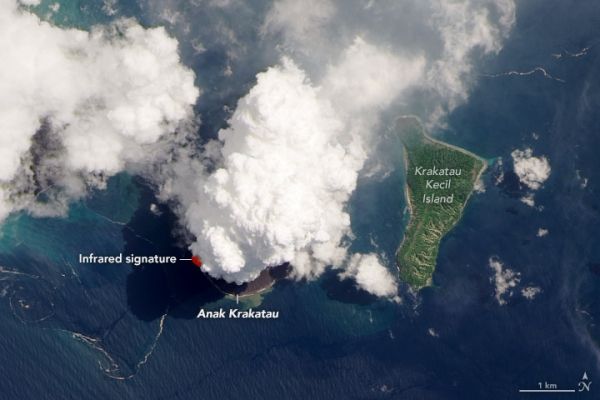Anak Krakatau maintains a mighty and sometimes menacing presence in the Sunda Strait between Java and Sumatra, with more than 50 known periods of eruptions in almost 2,000 years. The Indonesian volcano’s latest burst of activity has produced numerous plumes and lava flows in 2020, including some relatively small but notable events in April.
On April 13, 2020, the Operational Land Imager (OLI) on Landsat 8 acquired this natural-color image (OLI bands 4-3-2) of the volcano as a plume towered over the peak. The natural-color image is overlaid with the infrared signature detected by OLI of what is possibly molten rock.
“The location of the plume suggests that it is volcanic in origin,” said Verity Flower, a USRA volcanologist based at NASA’s Goddard Space Flight Center. Flower and colleagues use the Multi-angle Imaging Spectroradiometer (MISR) sensor on NASA’s Terra satellite to measure the height of volcanic plumes and to observe the shape, size, and light-absorbing properties of the particles within plumes. “On April 12, I saw a similar feature in one of the angular MISR images with a plume-like feature above the volcano summit.”
Continue reading at NASA Earth Observatory
Image via NASA Earth Observatory


